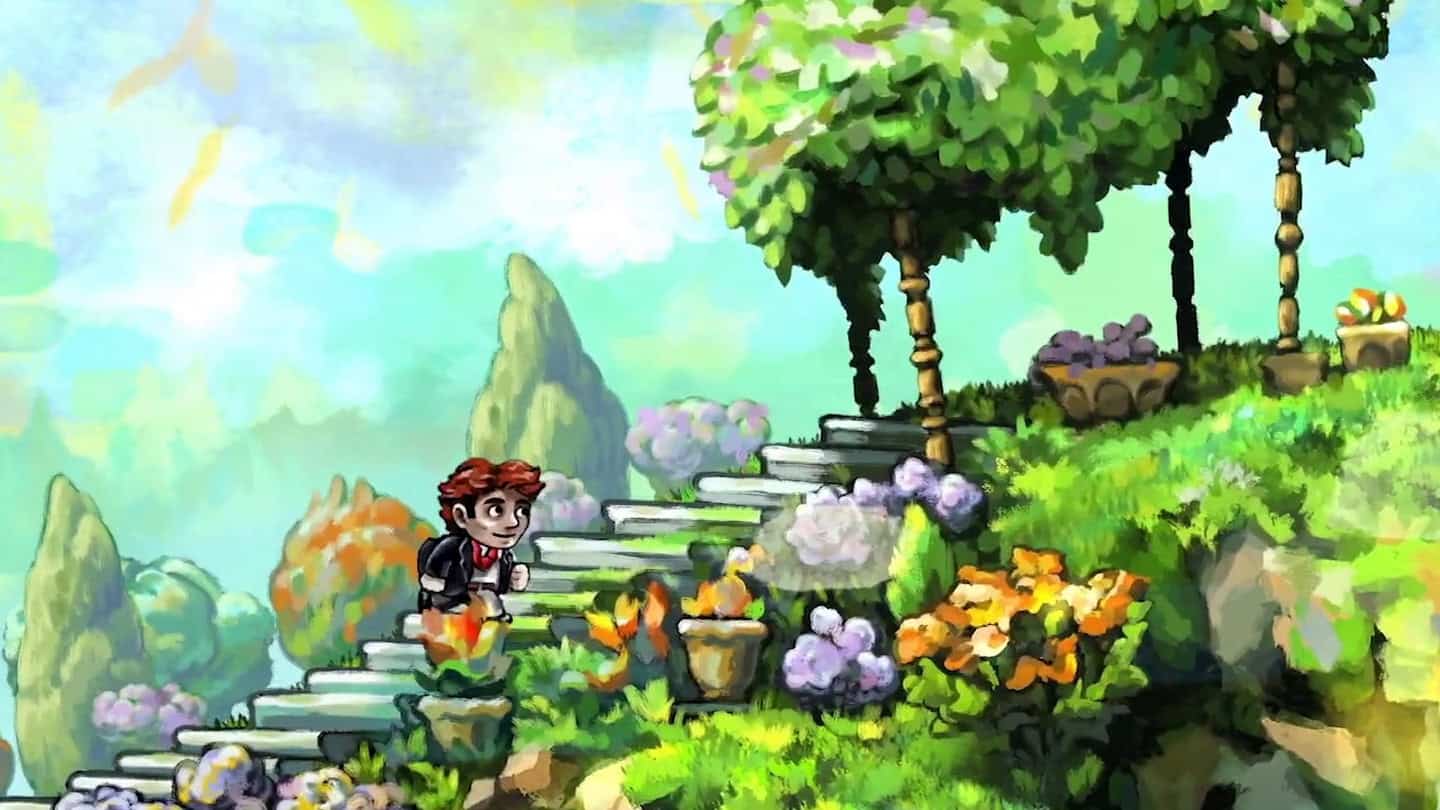One of the best things about puzzle games is that they can take on a multitude of different forms. Sure, some games are purely puzzle-centric experiences, but then there are even more titles in the genre that blend puzzle-solving mechanics with any number of disparate gaming genres. There are puzzle-shmup hybrids, falling block puzzlers, matching puzzlers, puzzle platformers, adventure games with a heavy puzzle-solving component, and so much more. At their core, though, the best puzzle games should be both quick and addictive, with players learning from their mistakes and quickly able to jump back into the action at no penalty. The best puzzle games from the 2000s are all titles that fit this criteria, making the player incapable of resisting “just one more round” to try and achieve mastery.
In an effort to try and sample a taste of everything the puzzle genre has to offer, the games on this list run the gamut from classic falling-block puzzlers to more complex and intricate offbeat puzzle experiences that beg to be played at least once. The 2000s would begin in the 5th generation and quickly transition into the 6th and then 7th-generation home consoles, giving way to entirely new experiences across multiple genres of gameplay. The enduring puzzle genre is no exception, with some of its best games arriving during the era and continuing to serve as an example of how fun and addictive a good puzzler can be.
10. Ikaruga
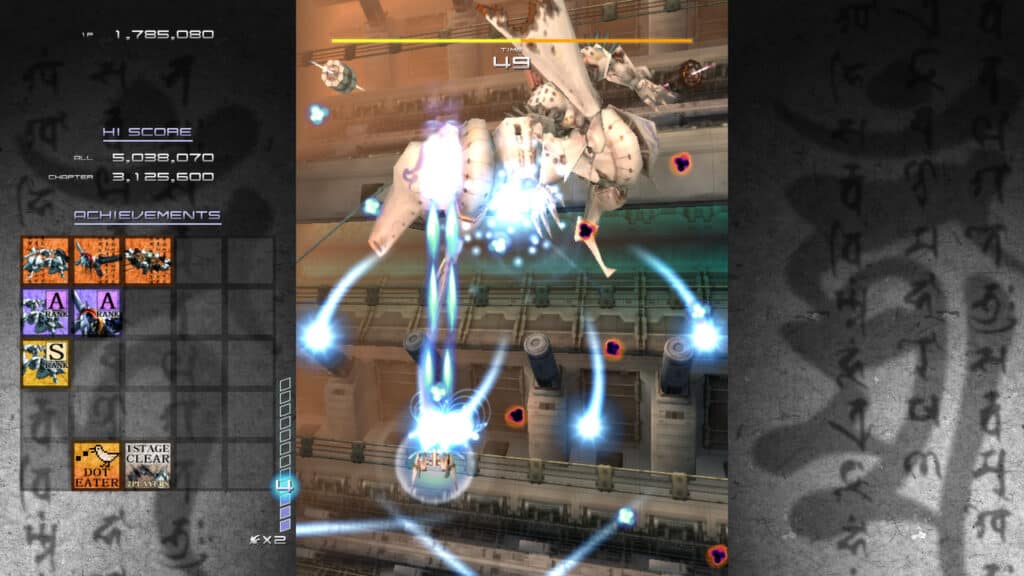
- Release Date — December 20, 2001
- Platforms — Arcade
- Metacritic Score — 85% (Generally Favorable)
It tends to irk some shmup purists to hear the game described as such, but Ikaruga has a strong claim to being one of the only shoot ’em up-puzzle hybrid games ever made. This vertically-scrolling classic from Treasure routinely lands on the “best of all-time” lists for the shmup genre, and its unique gameplay twist on the classic shmup formula is what cements its legendary status. Players have to control their ship’s “polarity”, where switching between black and white shots allows players to deal more damage to the opposite color enemy type and absorb the same color of incoming enemy bullets. And if that wasn’t already complicated enough, later stages turn into a maddening dance of rapidly switching back and forth between polarities just to maneuver through stages, much less deal with enemies. Ikaruga‘s color-based combat is a puzzle in and of itself.
9. Professor Layton and the Curious Village
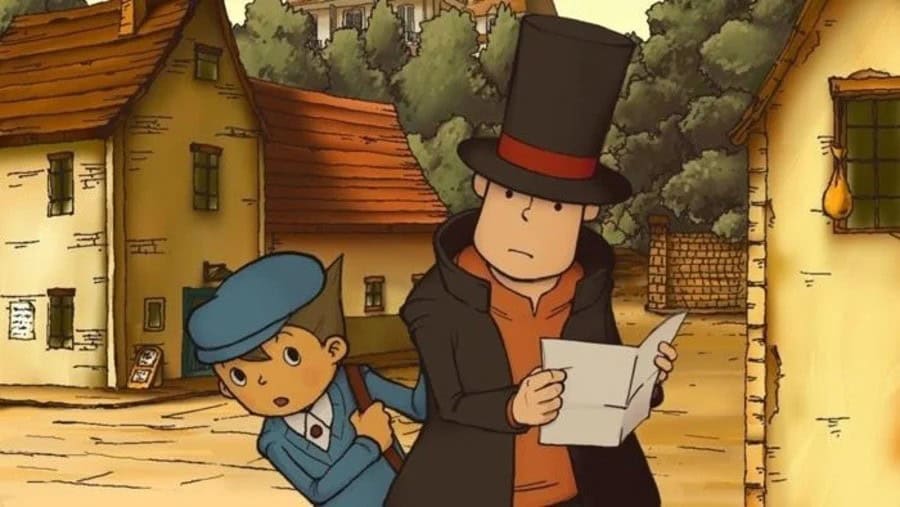
©Professor Layton & The Curious Village official artwork
- Release Date — February 10, 2008
- Platforms — Nintendo DS
- Metacritic Score — 85% (Generally Favorable)
The Professor Layton series is an endlessly charming franchise chock full of excellent logic-based puzzles and adventure, and the first game in the series is still arguably its best. Professor Layton and the Curious Village sees the titular protagonist and his apprentice, Luke, visiting the remote village of St. Mystere to solve a mystery surrounding the Golden Apple. The late Baron of St. Mystere offers his vast fortune to anyone who can solve the mystery of the Golden Apple and locate it, prompting the entire village to get in on the fun and test the player’s mettle with a wide-ranging selection of brain-teasers. With some intuitive and excellent use of the DS’ touch screen and some true head-scratching moments, Professor Layton and the Curious Village stands out as one of the definitive titles on Nintendo’s handheld.
8. Katamari Damacy
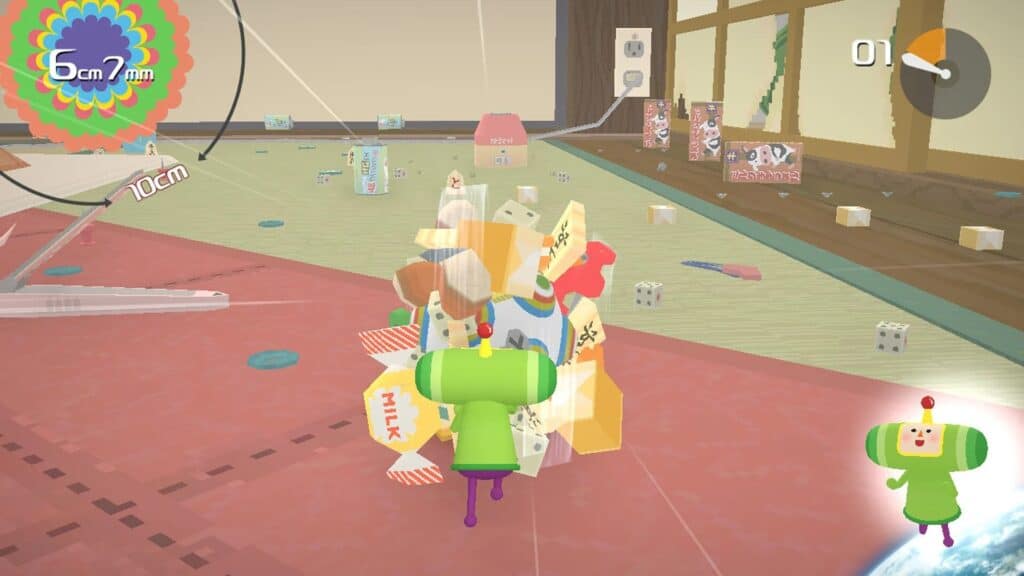
- Release Date — September 21, 2004
- Platforms — PlayStation 2
- Metacritic Score — 86% (Generally Favorable)
Despite the fact that it qualifies as a puzzle game (well, a puzzle platformer at least), Katamari Damacy is unlike any game ever made except for the other Katamari games. Players take control of the young Prince, heir to the King of the Cosmos, who is tasked with going to various environments and gathering up as many objects as possible using the titular katamari — an adhesive ball that can stick to anything and carry any amount of weight. The challenge (and fun) in Katamari Damacy comes from finding the optimal routes to gather up every object in a stage as quickly as possible, and the game’s incredible soundtrack and offbeat sense of humor only serve to make every run more appealing than the last.
7. Zack & Wiki: Quest for Barbaros’ Treasure
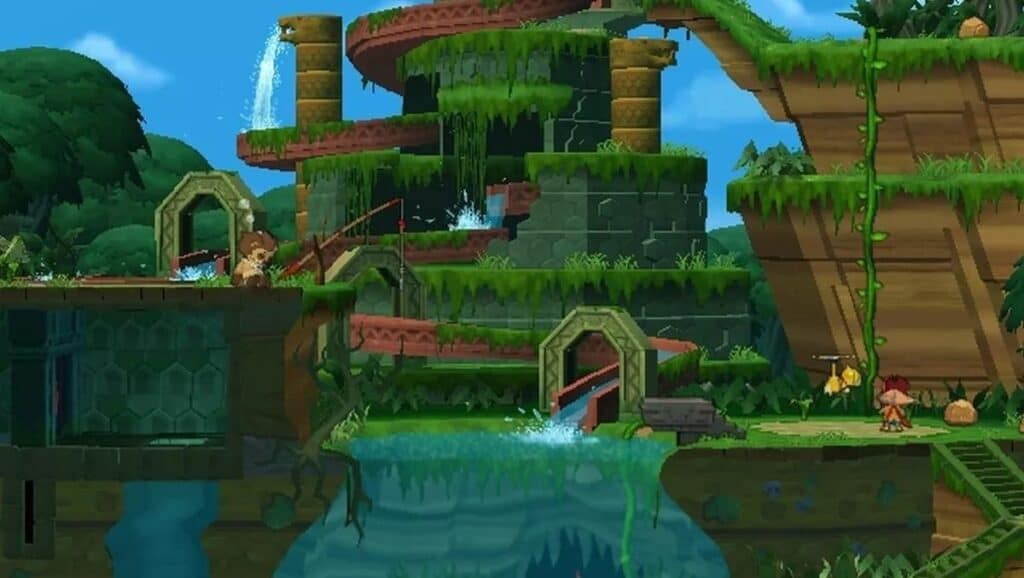
©Zack & Wiki: The Quest for Barbaros’ Treasure gameplay screenshot
- Release Date — October 23, 2007
- Platforms — Wii
- Metacritic Score — 87% (Generally Favorable)
In the truest use of the term, Zack & Wiki: The Quest for Barbaros’ Treasure is a hidden gem in the Wii library and an overlooked classic. This adventure-puzzle hybrid makes great use of the Wii’s motion controls to allow players the same functionality of a classic “point-and-click” PC adventure game. The result is that Zack & Wiki feels like one of the LucasArts classics from the early 90s but still retains an identity all its own, especially with players getting to use in-game items by mimicking their real-world use with the WiiMote. The writing and humor are charming and reminiscent of classics like Secret of Monkey Island, the puzzles are ingenious but also intuitive, and the game’s unique implementation of combat in a genre that traditionally avoids it makes Zack & Wiki stand out among other adventure games and puzzle platformers.
6. Meteos
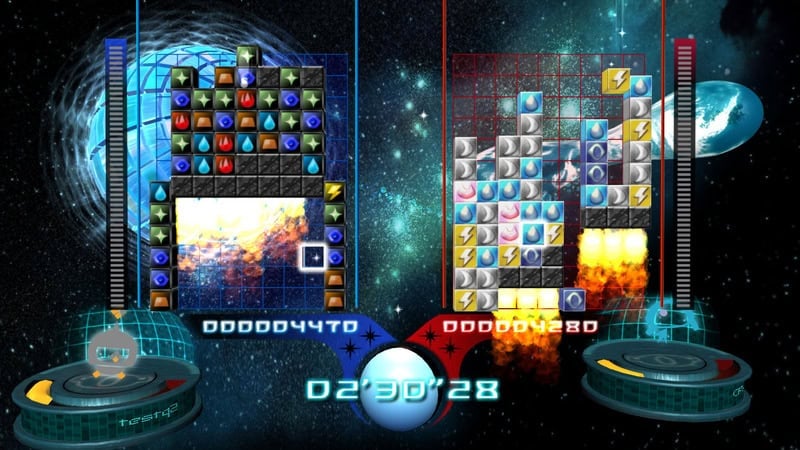
- Release Date — June 28, 2005
- Platforms — Nintendo DS
- Metacritic Score — 88% (Generally Favorable)
To call Meteos a simple “falling-block” or “tile-matching” puzzle game is doing it a great disservice, as it’s both one of the DS’ best puzzle games and a wholly unique title in the genre. Coming from Rez mastermind Tetsuya Mizuguchi, Meteos‘ premise sounds simple enough but its ingenuity becomes obvious in execution. The titular Meteos blocks fall from the top of the screen, and players must match strings of three or more Meteos that are the same color to get them to disappear before the screen fills up and it’s Game Over. However, the twist to Meteos is that the blocks can only be destroyed by reaching the top of the screen, requiring players to match blocks before they ignite and rise to the top. It’s a unique and compelling inversion of the classic falling-block puzzler and one that shouldn’t be missed.
5. Peggle
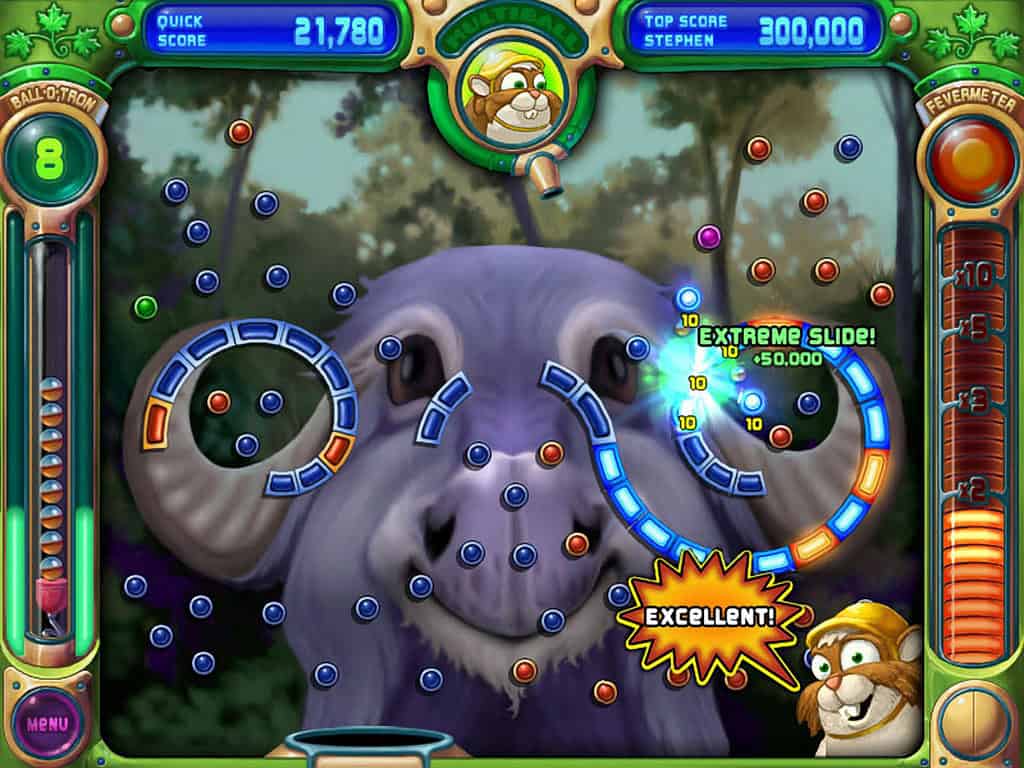
- Release Date — March 11, 2009
- Platforms — Xbox 360 (Xbox Live Arcade)
- Metacritic Score — 89% (Generally Favorable)
The Xbox Live Arcade program on the Xbox 360 would be a massive boon for console owners, bringing a whole new generation of indie developers and their games into the spotlight. One of the early highlights of the service is Peggle, the absurdly addictive Pachinko-like puzzler that would eventually find its way into World of Warcraft as a playable mini-game. In Peggle, players have a limited number of shots to use in destroying patterns of blocks, with certain blocks earning more points and optimal routing of firing trajectory a primary concern. The goal to clear the board of each stage is simple, but finding the optimal path to victory is what makes Peggle so enjoyable and addictive.
4. Lumines
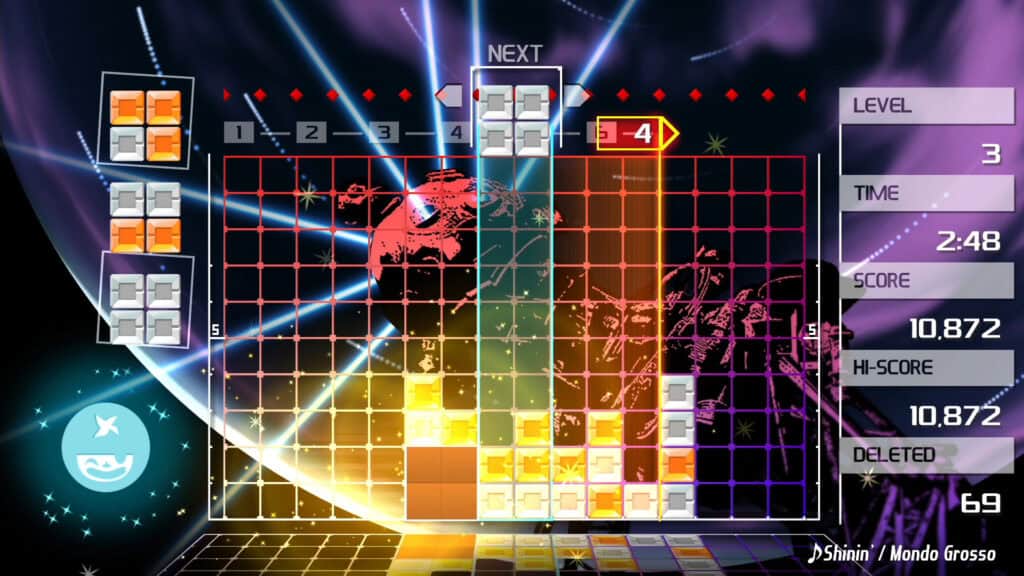
- Release Date — March 22, 2005
- Platforms — PSP
- Metacritic Score — 89% (Generally Favorable)
Another classic puzzle game from Tetsuya Mizuguchi is the PSP launch title Lumines. In terms of falling-block puzzlers that owe a massive debt of gratitude to Tetris, Lumines is certainly up there, but the game’s unique twist on the format helps it stand out as a classic in its own right. In Lumines, players must rotate 2×2 blocks to align like colors with alike, at which point they disappear when a metronome-like timeline passes over them. The game’s incorporation of light, color, and music make it a feast for the eyes and almost something akin to a hybrid between a rhythm game and a puzzler.
3. World of Goo
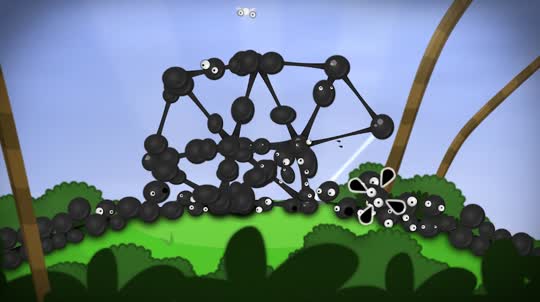
- Release Date — October 12, 2008
- Platforms — iOS, PC, Wii
- Metacritic Score — 93% (Universal Acclaim)
2008’s World of Goo is an incredible physics-based puzzle game in which players must use amorphous blobs of goo to create structures that allow larger goo blobs to reach a goal. With the ultimate challenge residing in making an architecturally sound structure with as few goo blobs as possible, World of Goo provides just as much enjoyment out of failure as it does out of victory. Watching the larger goo blobs pass over a structure only for it to hilariously crumble and the creatures come tumbling down is all the better thanks to excellent animation, and the ability to hop right back in and try again means it never takes too long to get past a challenging level.
2. Braid
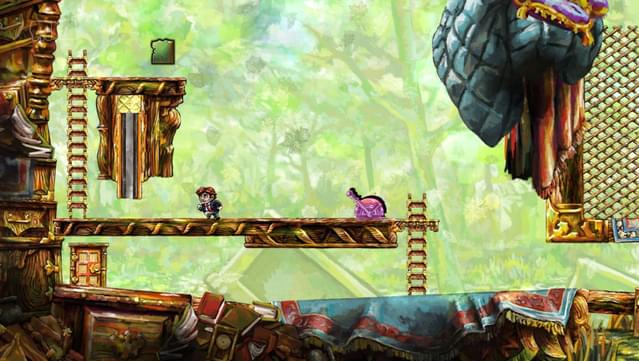
- Release Date — August 6, 2008
- Platforms — Xbox 360 (Xbox Live Arcade)
- Metacritic Score — 93% (Universal Acclaim)
Jonathan Blow’s Braid is both one of the great puzzle platformers and one of the most important games in legitimizing the indie development scene during the 2000s. An ingenious game that uses time manipulation as its signature mechanic, Braid starts out simple enough and then grows exponentially in terms of its challenge, forcing the player to think in 4 dimensions despite it being a 2D game. Blow would go on to craft another of the greatest puzzle games of all time in The Witness, but Braid‘s creativity and ingenuity still place it as perhaps the developer’s definitive work and an all-time classic in the puzzle genre.
1. Portal

- Release Date — October 10, 2007
- Platforms — PC, Xbox 360
- Metacritic Score — 90% (Universal Acclaim)
Valve’s immense success would result in the studio not needing to make games very early on in its existence, to the point where when Valve makes a game, the entire gaming community stands up and takes notice. 2007’s Portal would be the first new title from Valve in three years, and it quickly established itself as a massive leap in how we can think about manipulating interactive spaces. Portal is one of those rare games where the experience of playing it for the first time can never be recaptured, but even on repeat playthroughs it still holds up as one of the most mind-bending puzzle platformers ever created. Tearing holes in time and space would have seemed impossible to achieve in a video game before Portal, and Valve continues to push the limits in terms of what we can expect from interactive entertainment.
The image featured at the top of this post is ©Braid gameplay screenshot.
